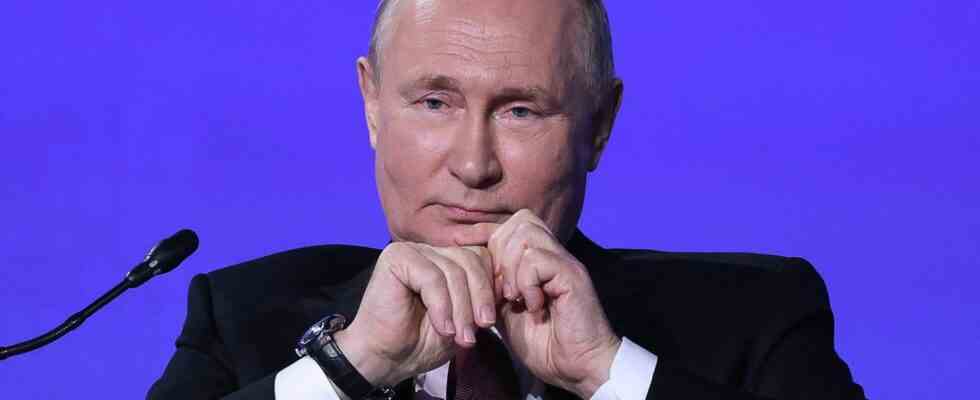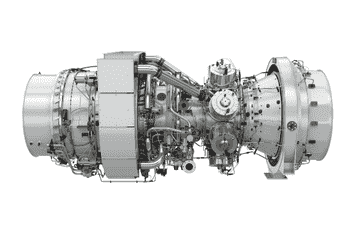Good morning, dear readers,
did you also dream about the SGT-A65 turbine last night? I hope not, but if you do, you probably share this nightmare with many German politicians at the moment. The gas turbine repaired in Canada, which is awaiting use in the Nord Stream 1 Baltic Sea pipeline, is… Epitome of Putin’s gas war against Germany become.
embed
The traffic light reacted with fright: worst-case scenarios were spread, sanctions against Russia were undermined, Western partners were annoyed. The Siemens turbine was considered “essential” in order to be able to deliver Russian gas through the pipeline again. At least that’s what the Kremlin said Germany rushed to meet the terms.
Gas is now flowing again through the German-Russian destiny tube – a little less as of today – but the turbine is still not back in Russia. What’s more, her whereabouts have been a mystery for days. Hardly anyone knows where to find it.
Faithful Christians would invoke St. Anthony in this emergency, which according to the legend helps to find lost objects. Growing up, I often witnessed domestic searches on behalf of “Schlampertoni” — as he’s affectionately known in Bavaria — so I know the old Franciscan monk can be picky. Not every item is worthy of his help. Many a car key or driver’s license has not turned up to this day.
After all: Siemens gave a hint on Monday, the turbine missed a ferry to Finland and is currently on German soil. But exactly where and when she will be taken away remains a mystery. The federal government also remains silent and refuses to provide information about “where the turbine is when”.
You may object that a gas turbine for Russia is not Schlampertoni’s responsibility. In general, the topic is too serious for an ironic comment.
I would like to disagree with you. After all, the endless saga surrounding the Nord Stream turbine is just that: a political game by the Kremlin, albeit a decidedly cynical one. Because even before one turbine is back, the Russian operator Gazprom reported a problem with another turbine on Monday. The result: halving the amount of gas through the Nord Stream pipeline. From this Wednesday, only 33 million cubic meters per day will flow to Germany, around 20 percent of the maximum capacity.
By then it was clear: The turbine is just an excuse to blackmail Germany. A political play put on by Putin’s KGB clique in the Kremlin to show the West his vulnerability. With success – the tug of war over the turbine was a clever move by the Kremlin. The balance:
- Western partners attacking each other
- Sanctions circumvented for national self-interest
- a turbine stranded in the middle of nowhere
- Gas that is still throttled in the end
They didn’t want to give the Kremlin any excuses, Germany to turn off the gas completely, the traffic light justified their actions. Foreign Minister Annalena Baerbock, of all people, who otherwise follows a clear course towards Russia, even raved about the threat of “popular uprisings”. Yet in the end, Putin’s trap snapped shutthe federal government ran in with their eyes wide open.
Now many will say: It was clear. I already knew! Russia is constantly creating some kind of pretext to achieve its goals. Correctly. But blackmailing states is a complex political operation. It requires sensitivity and depends on many factors: Does the person being blackmailed give in or does he manage to mobilize counter-pressure? Where is the Achilles heel, when to strike? At the same time, does the blackmailer offer a way out and thus try to control the narrative?
Unfortunately, the Kremlin has accumulated a kind of specialized knowledge over the years in waging gas warfare: for example in the gas war against Belarus in 2004, when Moscow turned off the gas tap in Minsk in a wintry minus 25 degrees. Or against Ukraine in 2005, Georgia in 2006, and so on. The Nord Stream operator Gazprom has a special role to play here: the former Gazprom employee Igor Volobuyev recently revealed how systematically the company was converted into a weapon in Putin’s hybrid warfare. After the start of the invasion, the former PR manager switched sides and today calls the company Russia’s “throttle stick”. riddled with Putin’s ex-KGB cronies.
The federal government should make itself clear: In the gas war, she is not dealing with beginners. “Don’t provide any excuses” is a weak strategy against a power clique that has been refining its blackmail tactics for 20 years.
What got lost in the turbine posse were Ukraine’s reservations about the deal between Canada and Germany. Because by returning the spare part to Gazprom, the two countries violated the sanctions against Russia, which are intended to isolate the Putin regime economically. But the criticism from Kyiv faded away in the German orchestra of doom. Which brings us to the topic: the crumbling front of Ukraine supporters in the Federal Republic.
In addition to the AfD and parts of the Left Party, who are trying to bring about the end of the sanctions with catastrophic scenarios, German intellectuals are constantly writing open letters calling for a de facto surrender by Kiev so as not to risk a world war with Russia. And even in the SPD and Union there are increasing doubts as to how long the tough course towards Moscow can be maintained.
One of the few who dared to break cover, is Saxony’s CDU Prime Minister Michael Kretschmer. His call for a “freeze” on the Ukraine conflict – a cipher for approaching Russia – earned him a rebuke from his party leader.
Friedrich Merz’s word of power – “Not the opinion of the CDU!” – presumably not only applied to the wandering Kretschmer. All secret skeptics in the Union, who meanwhile see more harm than good for Germany in the Russia sanctions, should also feel addressed.




